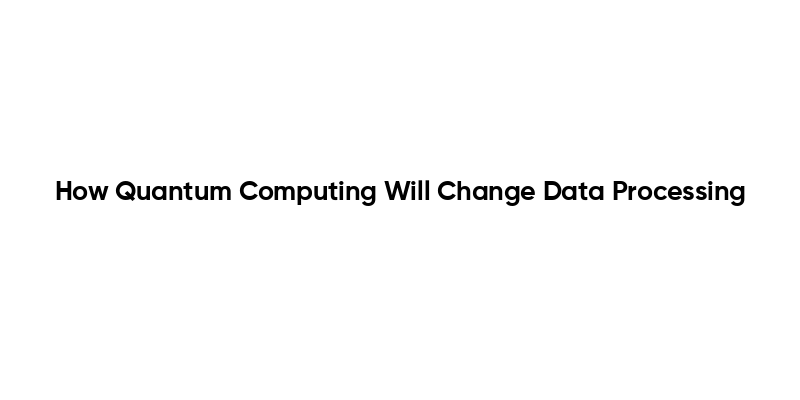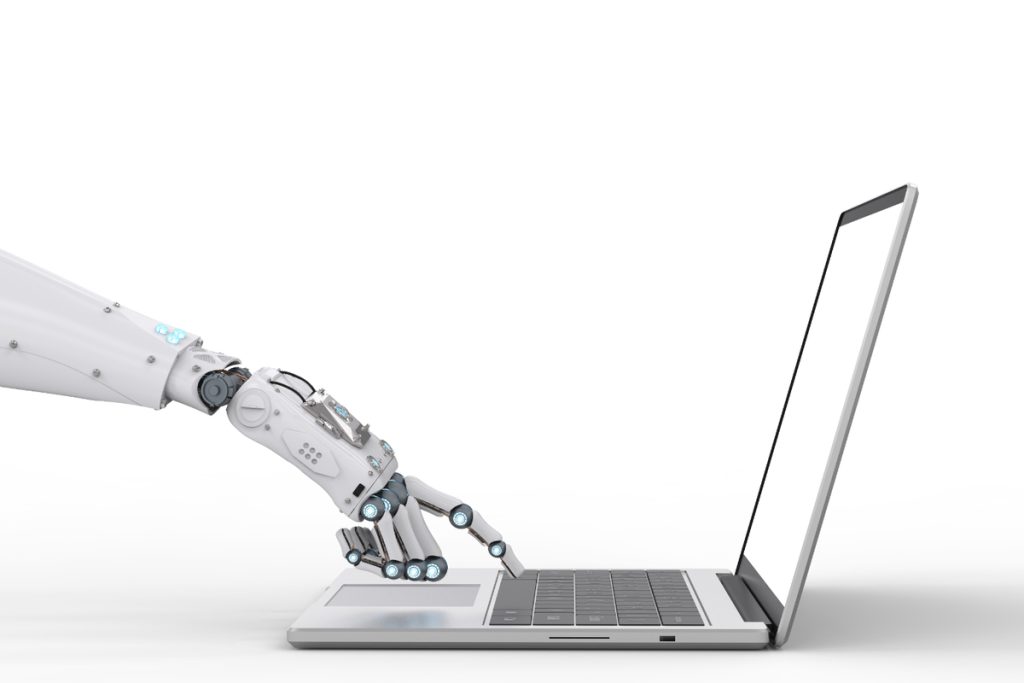In the rapidly evolving landscape of technology, how quantum computing will change data processing stands out as a pivotal topic. Quantum computing harnesses the principles of quantum mechanics to process information in ways that classical computers cannot. This revolutionary approach promises to transform data processing by enabling faster computations, solving complex problems, and enhancing data security. As we delve deeper into this subject, we will explore the implications of quantum computing on various industries and its potential to reshape our digital future.
Throughout this article, you will learn about the fundamental differences between classical and quantum computing, and how these differences lead to unprecedented advancements in data processing capabilities. We will discuss real-world applications of quantum computing, from optimizing supply chains to improving machine learning algorithms. Additionally, we will examine the challenges that lie ahead in the integration of quantum technologies into existing systems, and what this means for businesses and consumers alike.
As you continue reading, you will gain insights into the future of data processing and the role quantum computing will play in driving innovation. Whether you are a tech enthusiast, a business leader, or simply curious about the future of technology, this exploration of quantum computing will provide you with valuable knowledge and a deeper understanding of its transformative potential. Join us on this journey to uncover how quantum computing is set to revolutionize the way we process data.
Quantum Supremacy and Its Implications
Quantum supremacy refers to the point at which quantum computers can perform calculations that classical computers cannot complete in a reasonable time frame. This milestone has significant implications for data processing, as it opens the door to solving complex problems in fields such as cryptography, optimization, and machine learning. With quantum computers, tasks that would take classical systems thousands of years could potentially be completed in mere seconds.
The ability to process vast amounts of data simultaneously through quantum bits (qubits) allows for more efficient algorithms. For instance, Shor’s algorithm can factor large numbers exponentially faster than the best-known classical algorithms, posing a threat to current encryption methods. This shift necessitates a reevaluation of data security protocols and could lead to the development of new quantum-resistant encryption techniques.
Enhanced Data Security through Quantum Cryptography
Quantum computing not only poses challenges to existing encryption methods but also offers innovative solutions through quantum cryptography. Quantum key distribution (QKD) utilizes the principles of quantum mechanics to create secure communication channels. This technology ensures that any attempt to eavesdrop on the communication will be detectable, thus providing a higher level of security compared to classical methods.
As organizations increasingly rely on data-driven decision-making, the need for robust security measures becomes paramount. Quantum cryptography can safeguard sensitive information, making it particularly valuable for sectors such as finance, healthcare, and government. The integration of quantum cryptography into data processing systems could revolutionize how data is transmitted and stored, ensuring that privacy and integrity are maintained.
Accelerated Machine Learning Algorithms
Machine learning is a critical component of data processing, and quantum computing has the potential to significantly enhance its capabilities. Quantum algorithms can process and analyze large datasets more efficiently than classical algorithms, leading to faster training times and improved model accuracy. For example, quantum support vector machines and quantum neural networks are emerging as powerful tools for data classification and regression tasks.
By leveraging quantum parallelism, these algorithms can explore multiple solutions simultaneously, allowing for more comprehensive data analysis. This capability is particularly beneficial in fields such as genomics, where the volume of data is immense. As quantum computing technology matures, we can expect to see breakthroughs in predictive analytics and pattern recognition, transforming how businesses and researchers approach data-driven challenges.
Optimization Problems and Quantum Solutions
Many industries face complex optimization problems that require significant computational resources to solve. Quantum computing offers a new approach to these challenges by utilizing quantum annealing and other optimization algorithms. These methods can find optimal solutions more efficiently than classical counterparts, making them ideal for logistics, finance, and resource management.
For instance, companies can use quantum algorithms to optimize supply chain logistics, reducing costs and improving efficiency. The ability to analyze multiple variables and constraints simultaneously allows for more informed decision-making. As quantum technology continues to evolve, its application in solving real-world optimization problems will become increasingly valuable, leading to enhanced operational efficiencies across various sectors.
The Future of Data Processing: Integration of Quantum and Classical Systems
As quantum computing technology advances, the future of data processing will likely involve a hybrid approach that integrates both quantum and classical systems. This integration will enable organizations to leverage the strengths of each technology, optimizing performance and efficiency. For example, classical computers can handle routine tasks while quantum systems tackle complex computations that require advanced processing power.
This collaborative framework will facilitate a smoother transition to quantum computing, allowing businesses to gradually adopt the technology without overhauling their existing infrastructure. Additionally, as quantum hardware becomes more accessible, we can expect a surge in applications that utilize quantum computing for data processing, leading to innovative solutions and new business models.
| Aspect | Description |
|---|---|
| Speed | Quantum computers can process complex calculations at unprecedented speeds due to their ability to perform multiple calculations simultaneously using qubits. |
| Data Security | Quantum computing introduces advanced encryption methods, such as quantum key distribution, which can enhance data security and protect against cyber threats. |
| Optimization | Quantum algorithms can solve optimization problems more efficiently, leading to better resource allocation and improved decision-making in various industries. |
| Machine Learning | Quantum computing can significantly accelerate machine learning processes, enabling faster training of models and more accurate predictions. |
| Big Data Analysis | Quantum computers can analyze vast datasets more effectively, uncovering patterns and insights that classical computers may struggle to find. |
| Simulation | Quantum computing allows for the simulation of quantum systems, which is crucial for fields like materials science and drug discovery. |
| Challenges | Despite its potential, quantum computing faces challenges such as error rates, qubit coherence, and the need for specialized algorithms. |



